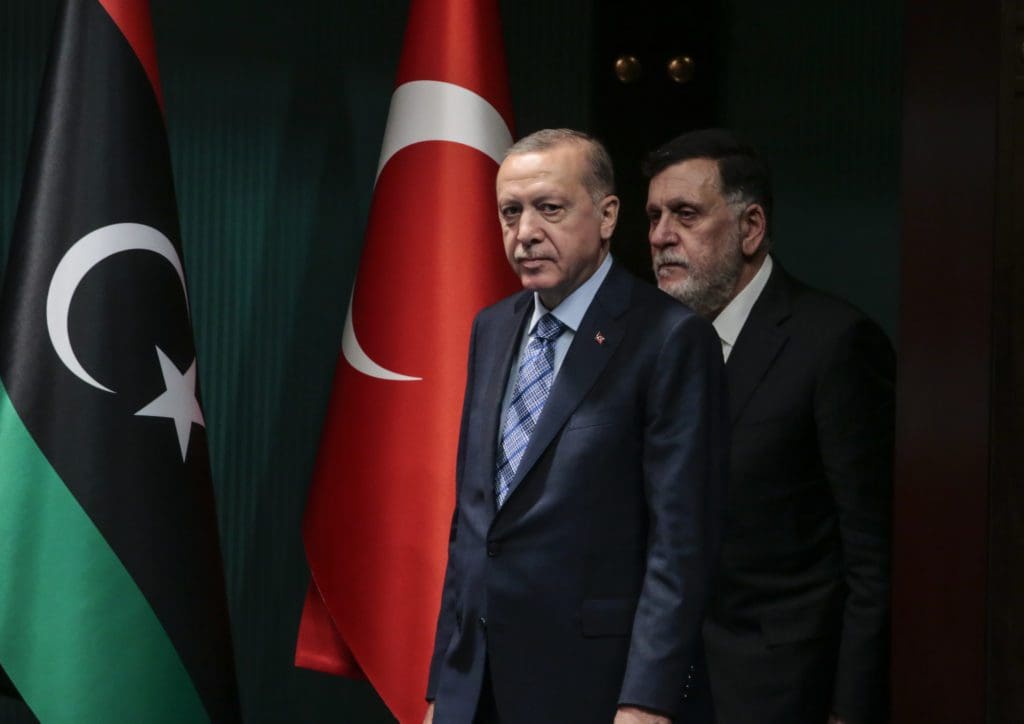
Event Summary: What’s at Stake for Turkey in Libya?
July 14, 2020ANKARA, TURKEY - JUNE 4: Turkish President Recep Tayyip Erdogan (L) and Libyan Prime Minister Fayez al-Sarraj (R) hold a joint press conference at Pr

On Thursday July 9th the SETA Foundation at Washington D.C. hosted an event to discuss what at's stake for Turkey in Libya. The discussion featured Talha Kose, Chair, Political Science and International Relations Department, at Ibn Haldun University, Murat Yesiltas, Director, at the Security Studies Program at The SETA Foundation and was moderated by Kilic B. Kanat, Research Director st The SETA Foundation at Washington DC
Talha Kose argued that the internationalization of the conflict was inevitable from the start. Countries like France are involved in Libya under the guise of counter Islamism. France has lost its involvement in sub-saharan Africa and North Africa, and Libya is key for their involvement to the sahil region of former colonies. Turkey did not want to be excluded from the hydrocarbon game which shows how the geo-economic aspect of it is a big part of Turkish motivations to enter Libya. This need is exacerbated when one is reminded that Turkey is largely dependent on others for resources like natural gas. Turkish-Russian relations have also been complicated by this conflict. Given Russian involvement in Syria, and NATO’s increasingly isolation-ary tactics towards Ankara, there is a risk of Turkey turning to Russia. Turkey has geopolitical ambitions in the regions and is using these crises to create military presence in the region. Libya proves that Turkey’s interests are largely those of security. Before 2019, the Libyan intervention was not framed as a security conflict in the way it is today. Additionally, there is a counterrevolutionary posture and ideological commitment in the region they have pursued. For Russia this is an opportunity to generate and establish a stronger regional presence. Russia is not committed to Haftar and potentially views him as a liability. Murat Yesitas agreed with Talha and then expanded on the security aspect of the discussion. Yesitas claimed that Egypt’s position in Libya is flexible, and it would boost Egypt’s benefits to cooperate with Turkey. Egypt does not have a real red line; it cannot implement a military objective into the Libyan crisis. When you take into consideration other regional countries' military capacity it would be very difficult for Egypt to take the risk and militarily enter the country. He also clarified that the Muslim Brotherhood in Libya were not in power, and therefore did not pose a justified threat, and instead argued that countries used the Muslim Brotherhood threat as a justification for intervention. All speakers and the moderator agreed that the Muslim Brotherhood was not a big concern for Turkey, as Muslim Brotherhood in Egypt is significantly stronger than in Libya. Additionally, Kose emphasized that the threat of Islamism was one which is weaponized by the UAE, whereas it is almost ignored by Turkey, which is unconcerned with ideology.



























